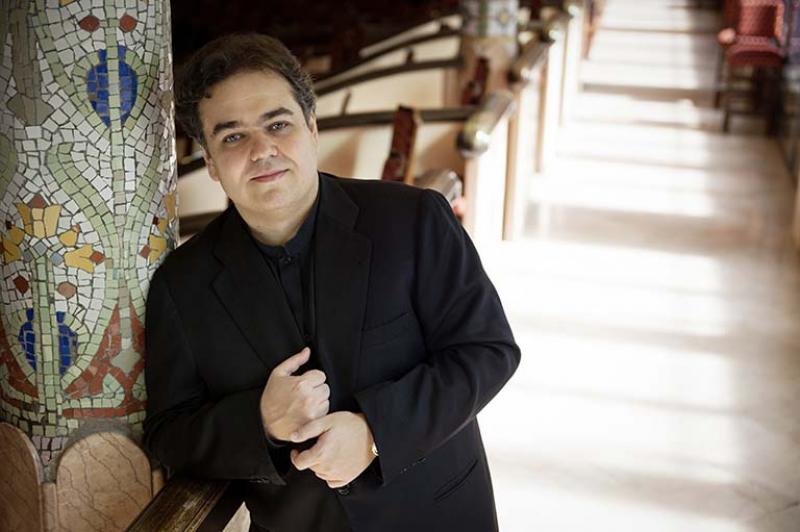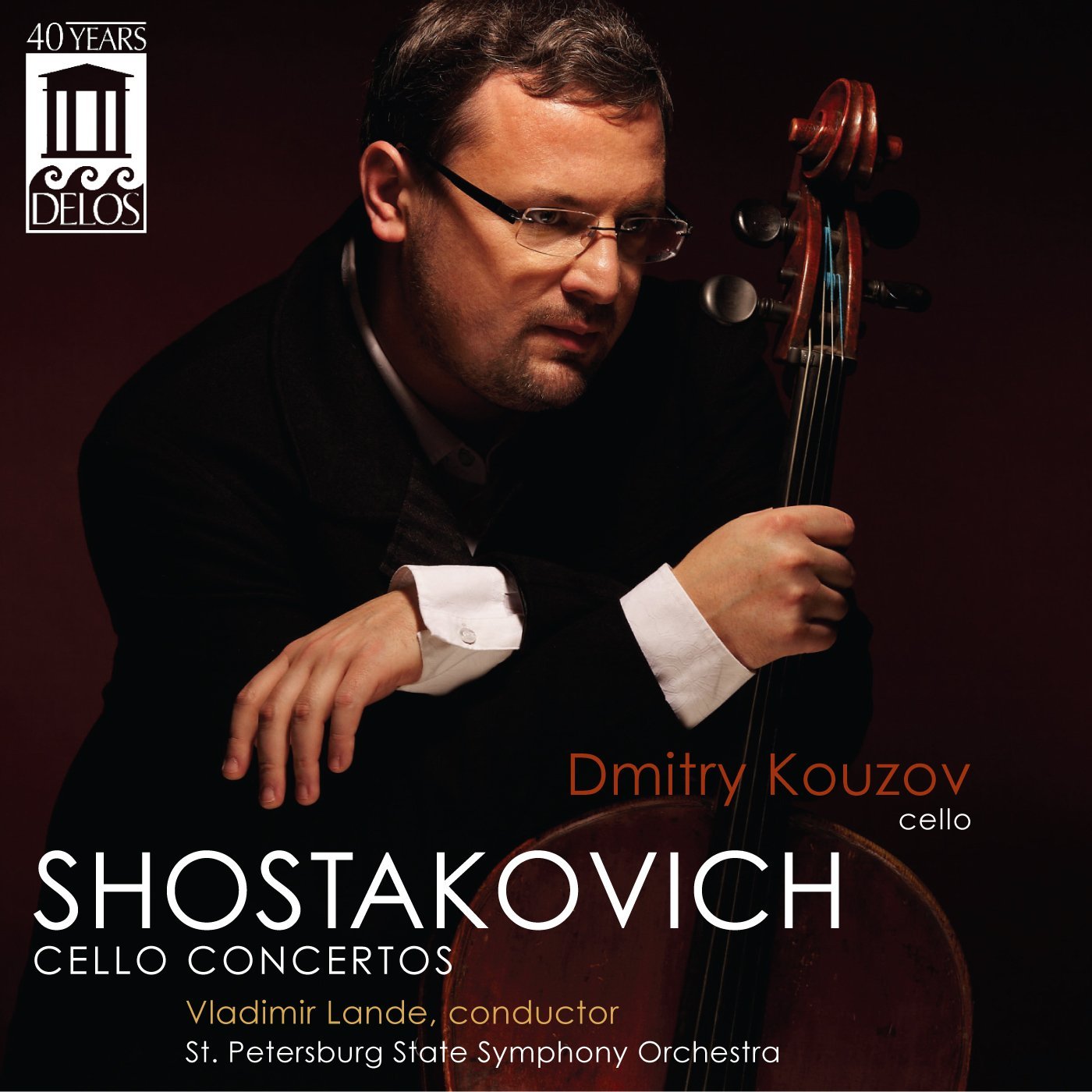Classical CDs Weekly: Mompou, Shostakovich, Stravinsky | reviews, news & interviews
Classical CDs Weekly: Mompou, Shostakovich, Stravinsky
Classical CDs Weekly: Mompou, Shostakovich, Stravinsky
Catalan piano music and two discs of 20th-century concertos


This is excellent, and a brilliant introduction to an under-appreciated composer. Frederic Mompou spent most of his long life in Barcelona, dying there aged 94 in 1987. The piano pieces collected on Arcadi Volodo’s handsomely recorded disc are consistently electrifying – in a very low-key way. Mompou rarely shouts; the melodic lines tend to be spare and unadorned, occasionally suggesting Satie. He was a master of compression and concision, a composer able to express himself with the slightest of gestures. Several of the later pieces sound intriguingly modern, but Mompou never abandoned tonality, however complex his harmonic language.
Two song transcriptions made by Volodos are bewitching, and the early Scènes d’enfants include beguiling portraits of Mompou’s home city. More arresting is an extended selection of pieces from Música Callada, the last of which were composed in the late 1960s. In the composer’s words, this is “music which contains neither air nor light… it has the mission to penetrate to the depths of our soul and the most secret corners of our spirit.” Take the time to explore Volodos’s sequence in a darkened room and you’ll be blown away; this is a sublime listening experience. Sony’s presentation is great – an elegant, hardback book, handsomely annotated, and a perfect tribute to a composer who once said “I don’t think up music, I merely transmit it.” Volodos's playing is refined and sensitive.

Dmitry Kouzov’s husky, sonorous cello tone adds extra Slavic gravitas to this pair of highly contrasted works. Kouzov wisely accentuates each concerto’s emotional mood. Meaning that Shostakovich's brasher Concerto no 1 is especially raucous, pungent and witty. Miss the humour and you end up with an unpleasantly dark and oppressive work. So much works well – piercing high woodwinds in the faster movements and a bold, whooping horn soloist, brilliant in the first movement’s cadenza. I like the way in which conductor Vladimir Lande phrases the slow movement’s opening string chorale, preparing us for the cello’s disarmingly simple melody. This is a compelling piece – Kouzov’s long third movent cadenza cranks up the tension and the finale successfully balances rowdy cheek with a touch of menace.
Kouzov and Lande also tap into the ambivalence of the more elusive Concerto no 2. This is another very good reading – Kouzov an eloquent guide to the first movement’s shadowy landscape, with Lande’s St Petersburg players revelling in the score’s eccentricities. The all-important percussion writing is exquisitely played, with deafening whipcracks in the last movement. And Kouzov’s playing in the closing minutes is masterly. He vanishes into the mist, accompanied by ticking woodblocks and xylophone - an extraordinary, spectral passage.

The piano was Stravinsky’s own instrument. Piano sound dominates so many of his orchestral works and ballets – think of the fiendish obbligato writing in Petrushka or the percussive keyboards accompanying Les Noces. Odd therefore that Stravinsky’s two large-scale works for piano and orchestra remain so underperformed. The Concerto for piano and wind instruments dates from 1924. It’s an entertaining piece – snatches of Bach jostle for attention with hints of jazz, though the relentless wind writing in the faster movements can tire the ear. Steven Osborne’s poised performance of the central Largo is cool in the best sense. More appealing is the work’s sequel, Stravinsky’s 1928 Capriccio for piano and orchestra. We’re not a million miles from Poulenc’s keyboard concertos, and the work charms and dazzles.
1959’s compact Movements for piano and orchestra is very different – a late. Webern-inspired piece. This is incredible music for a 77-year old composer to have produced. Understanding the serial techniques which Stravinsky uses will be beyond most of us; best, then, to revel in the boldness, the strangeness of the music – full of oblique silences and unorthodox sonorities. Osborne and conductor Ilan Volkov excel in making such a thorny work seem so lucid. Volkov also gives us an astringent, lithe reading of the Concerto in D for strings, and two entertaining miniatures. An extravagant setting of the Song of the Volga Boatman will raise a smile, and we’ve a rare chance to hear the 1966 Canon (on a Russian Popular Tune), dedicated to the memory of conductor Pierre Monteux and recycling a melody used in The Firebird. Decent notes, accomplished orchestral playing and sleeve art by Paul Klee. An essential purchase.
Explore topics
Share this article
The future of Arts Journalism
You can stop theartsdesk.com closing!
We urgently need financing to survive. Our fundraising drive has thus far raised £33,000 but we need to reach £100,000 or we will be forced to close. Please contribute here: https://gofund.me/c3f6033d
And if you can forward this information to anyone who might assist, we’d be grateful.

Subscribe to theartsdesk.com
Thank you for continuing to read our work on theartsdesk.com. For unlimited access to every article in its entirety, including our archive of more than 15,000 pieces, we're asking for £5 per month or £40 per year. We feel it's a very good deal, and hope you do too.
To take a subscription now simply click here.
And if you're looking for that extra gift for a friend or family member, why not treat them to a theartsdesk.com gift subscription?
more Classical music
 Mahan Esfahani, Wigmore Hall review - shimmering poise and radical brilliance
Magnificent demonstration of a lifelong dedication to the harpsichord
Mahan Esfahani, Wigmore Hall review - shimmering poise and radical brilliance
Magnificent demonstration of a lifelong dedication to the harpsichord
 Gromes, Hallé, Chauhan, Bridgewater Hall, Manchester review - new concerto and music of triumph
Spirit of Germany in the 1930s captured in Herz’s tense and despondent work
Gromes, Hallé, Chauhan, Bridgewater Hall, Manchester review - new concerto and music of triumph
Spirit of Germany in the 1930s captured in Herz’s tense and despondent work
 Helen Charlston, Sholto Kynoch, Temple Church review - fine singing, powerful stage presence
Coups de théâtre in a well-constructed programme
Helen Charlston, Sholto Kynoch, Temple Church review - fine singing, powerful stage presence
Coups de théâtre in a well-constructed programme
 Ridout, 12 Ensemble, Wigmore Hall review - brilliant Britten and bombastic Brahms
Dazzling solo and ensemble playing in pieces inspired by music of the past
Ridout, 12 Ensemble, Wigmore Hall review - brilliant Britten and bombastic Brahms
Dazzling solo and ensemble playing in pieces inspired by music of the past
 Argerich, Oxford Philharmonic Orchestra, Papadopoulos, Barbican review - the great pianist as life and soul
Her delivery of the Beethoven made it clear that she still merits legend status
Argerich, Oxford Philharmonic Orchestra, Papadopoulos, Barbican review - the great pianist as life and soul
Her delivery of the Beethoven made it clear that she still merits legend status
 Jessica Duchen: Myra Hess - National Treasure review - well-told life of a pioneering musician
Biography of the groundbreaking British pianist who was a hero of the Blitz
Jessica Duchen: Myra Hess - National Treasure review - well-told life of a pioneering musician
Biography of the groundbreaking British pianist who was a hero of the Blitz
 Chamayou, BBC Philharmonic, Morlot, Bridgewater Hall, Manchester review - blasts of Boulez, magical Ravel
Celebration of the two French masters continues in big bangs and gentleness
Chamayou, BBC Philharmonic, Morlot, Bridgewater Hall, Manchester review - blasts of Boulez, magical Ravel
Celebration of the two French masters continues in big bangs and gentleness
 Classical CDs: Snow, shards and swinging oars
Contemporary choral works, revamped lieder plus piano music from Ireland and Scotland
Classical CDs: Snow, shards and swinging oars
Contemporary choral works, revamped lieder plus piano music from Ireland and Scotland
 Bach's Mass in B minor, The English Concert, Bezuidenhout, St Martin-in-the-Fields review - solemnity and splendour
The greatest of choral anthologies smoulders, then flies
Bach's Mass in B minor, The English Concert, Bezuidenhout, St Martin-in-the-Fields review - solemnity and splendour
The greatest of choral anthologies smoulders, then flies
 Sidorova, Philharmonia, Alsop, Royal Festival Hall review - ladies of the dance
Vitality, virtuosity and sensuality on a pan-American trip
Sidorova, Philharmonia, Alsop, Royal Festival Hall review - ladies of the dance
Vitality, virtuosity and sensuality on a pan-American trip
 MacMillan's Ordo Virtutum, BBC Singers, Jeannin, Milton Court review - dramatic journey of a medieval soul
Choral music's finest advocate runs the gamut in an epic battle of heaven and hell
MacMillan's Ordo Virtutum, BBC Singers, Jeannin, Milton Court review - dramatic journey of a medieval soul
Choral music's finest advocate runs the gamut in an epic battle of heaven and hell

Add comment